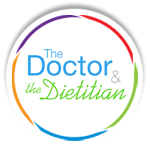You would be surprised at how many people carry around a bottle of pink stuff in their purses and purple pills in their pockets. We have had patients come to Caring Medical who consume up to twenty antacid tablets per day, and some combine that with antacid prescription medications. The increased volume of food eaten during the holidays causes even more people to rely on these quick fixes for their digestive problems. Unfortunately these people do not know the harm these antacids can cause and the simple diet changes that can relieve their digestive issues.
The Problem with Antacids
What is someone doing when they take antacids? They are neutralizing their stomach acid. Unfortunately that is not a good remedy for indigestion because now the acid cannot do its function.
The digestive process starts in the mouth where chewing and saliva starts breaking down the food. Then the stomach secretes acid to break the large food particles down into smaller particles. Without stomach acid, big particles of food are trying to get into the small intestines, but they are not broken down yet because the digestive process has been halted due to the lack of acid. The result is discomfort, heartburn, bloating, and more. Isn’t that amazing? Something that you are taking for supposed “acid” problems is actually worsening your problem. I attended a digestive enzyme seminar years ago and I clearly remember the physician teaching the course talking about how indigestion is not a stomach acid problem – but either a FOOD problem or an enzyme problem. In other words, you are not eating the right foods (or too much food) OR you are deficient in the enzymes required to digest your food.
At Caring Medical, we utilize a number of nutritional supplements that contain enzymes because we feel that many people are devoid of them, as well as the fact that many people consume “dead” foods – IE foods where the enzymatic action has been chemically halted by pesticides and other chemicals. Did you ever notice how quickly organic produce spoils? The reason is enzymes! Anyway…I digress…
Antacids (prescription and over the counter) also increase the pH of the stomach, disrupting the natural pH balance. The pH increase inhibits the action of pepsin, an enzyme involved in protein digestion that can be irritating to the stomach. Even though taking antacids relieved the symptoms, people have to keep in mind that hydrochloric acid (HCl) and pepsin are very important in digestion. When the secretion is low, or hindered, proper digestion and mineral dissociation will not occur. The change in pH can affect gut microbial flora, including the overgrowth of Helicobacter pylori, a bacterial infection of the gut that has been shown to lead to ulcer formation.
The Alternative to Antacids
It is imperative that a person eats right for his or her Diet Type. One of the most common things we see is improvement in digestion when someone begins following the proper Hauser Diet based on his or her Diet Typing test results. When someone eats a healthy diet plan that is specific for his or her physiology, natural body processes such as digestion begin to function correctly. The body is fueled to work at its maximum potential.
Also, favorite foods are often the cause of frequent indigestion. Food sensitivities can likely cause, or worsen, indigestion. This is a good place to start for those who have tested positive for food sensitivities, but have yet to cut them out of his or her diet. Their bodies are telling them that it does not need, nor want, the food they are eating.
So if you struggle with indigestion that is exacerbated with holiday eating, it is time to give us a call. Start the New Year of right with a healthy diet plan that will leave you free of indigestion and feeling better than ever. Diet Typing may be your answer, give us a call today!



